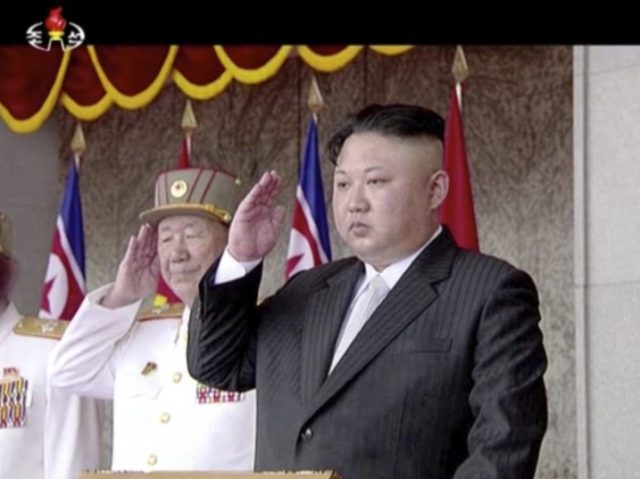North Korea lashed out with the expected venom and threats of violence after crushing new sanctions were imposed by a unanimous vote of the U.N. Security Council on Saturday.
Although the unanimous vote means North Korea’s patrons in China and Russia agreed with the Trump administration’s push for heavier sanctions, Pyongyang’s ire was focused largely on Washington.
“The U.S.’s villainous illegal actions against our country and people will be reciprocated by thousands fold,” thundered North Korea’s state-run KCNA news agency.
“The U.S., which once placed our land in a sea of blood and fire during a dreadful war, is now madly attempting to remove our foundation and structure,” the editorial broadside continued. “If it thinks that it will be safe because it is across an ocean, there is no bigger misunderstanding than that.”
North Korean Foreign Minister Ri Yong-ho bailed out of a press conference he was supposed to hold at the Association of Southeast Asian Nations (ASEAN) meeting in Manila on Monday, but he dispatched a spokesman to hand out printed statements declaring that “under no circumstances” will Pyongyang negotiate on its nuclear and ballistic missile programs.
Ri reassured ASEAN that North Korea has no intentions of dropping a nuclear bomb on anyone “except the U.S.” He said North Korea is prepared to “teach the U.S. a severe lesson with its strategic nuclear force.”
North Korea’s Rodong Sinmun asserted that the DPRK’s “will to bolster nuclear force is unshakable.”
“It is the firm faith and unshakable will of the Korean army and people to keep to the bolstering of nuclear force for self-defense under the banner of the line for simultaneously pushing forward the two fronts until they have wiped out the U.S. imperialists and their followers seeking to stifle the DPRK’s sovereignty and right to existence,” the paper wrote on Monday.
Rodong Sinmun accused “U.S. imperialists” of wanting to “isolate and strangle the DPRK” because they fear the “invincible mightiness and inexhaustible potentials for development of Juche Korea.”
“Juche” is the communist philosophy imposed by the Kim regime; ironically, given how utterly dependent the regime is upon Chinese and Russian support, the name translates to “self-reliance.” Rodong Sinmun touched upon that paradox by insisting that “neither sanctions nor military threats would work on the DPRK which is advancing under the banner of self-reliance and self-development with its people rallied as one in mind around the great leader and the great Party.”
The editorial wrapped up with a threat that North Korea’s recent ballistic missile tests are “a stern warning to the U.S. which is running like a headless chicken, talking nonsense without decorum.”
Despite its fury at the United States over the new sanctions, Chinese disapproval is the true existential crisis for the Kim regime. China’s support for the tough new sanctions is significant, although Beijing was back to its usual game of telling both the bloodthirsty North Koreans and the United States to “exercise restraint” once the Security Council vote was cast.
After meeting with North Korean Foreign Minister Ri Yong-ho at the ASEAN conference, Chinese Foreign Minister Wang Yi reiterated China’s traditional position that America and South Korea must work to avoid escalating tensions on the Korean peninsula, and should quickly respond to any “positive signals” on diplomacy from Pyongyang, should any such signals ever be emitted. He described sanctions as a means of bringing North Korea to the table for more talks, but said they are “not the final goal.”
However, Wang also said he told Ri, “Do not violate the UN’s decision or provoke the international community’s goodwill by conducting missile launching or nuclear tests.” Wang did not reveal Ri’s response to this message.

COMMENTS
Please let us know if you're having issues with commenting.